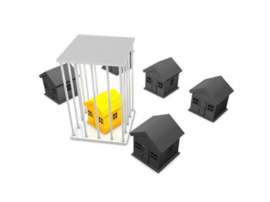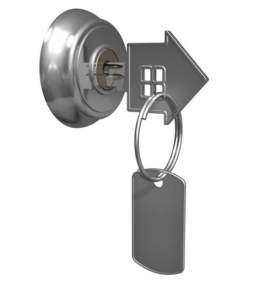
Foreclosure Process

Popular In Foreclosure
Deed In Lieu Of Foreclosure Stop Foreclosure Pre Foreclosure Protecting Tenants At Foreclosure Act Of 2009 Deed In Lieu Of Foreclosure Maryland Avoid Foreclosure Foreclosure Help Eviction Process In Missouri Eviction Process In Alabama Foreclosure Process Short Sale Deed In Lieu Of Foreclosure Ohio
What is a Foreclosure?
A foreclosure is the legal process by which a mortgage is terminated due to missed payments on the part of the mortgage holder. Foreclosure will effectively extinguish a homeowner’s right of redeeming a mortgaged property; the underlying bank or lender will seize the property due to the default.
The foreclosure process when applied to residential mortgage loans is initiated by a bank or secured creditor repossessing or selling a parcel of the real property after the owner fails to comply with the mortgage agreement, affirmed between the borrower and lender. Commonly, this violation is noted as a default in payment. When the mortgage process if finalized, the lender can resell the property through an auction or on the open market; the proceeds from the resale are used to pay off the pre-existing mortgage or any legal costs associated with the foreclosure process.
Because a foreclosure is typically precipitated by a default, the former homeowner’s credit rating will be reflected by the failure to fulfill the mortgage obligation.
Foreclosure Process:
The mortgage foreclosure process can be lengthy or rapid and will vary from state to state. If the homeowner does not want his/her credit rating to suffer, alternative options--including refinancing, temporary arrangements with the lender, alternative financing, a short sale, or even bankruptcy--can be engaged.
The foreclosure process is initiated through default actions on part of the homeowner; the process formally starts when the lender sends the homeowner a notice of default. This notice, which warns the homeowner of an impending foreclosure, is delivered if the individual misses one to three mortgage payments. If the mortgage holder does meet their payment obligations, the foreclosure process will take the following steps:
Notice to Accelerate:
Once the mortgage owner is sixty days behind their mortgage payment, they will receive a “notice to accelerate.” At this juncture, the homeowner will need to bring their mortgage current to halt the foreclosure process. The mortgage owner will need to pay the amount owed plus any late fees that are instituted by the lender. In addition to this letter, the mortgage owner may receive a notice stating that the lender will accelerate the due date and the corresponding foreclosure process.
The Demand Letter:
If the mortgage owner does not respond to the notice to accelerate with a payment in full, the lender will hire an attorney to forward a demand letter. This notification will mandate immediate repayment; if payments are not settled upon request, the lender will formally engage in the foreclosure process by filing the default with the court system.
Notice of Default:
If the homeowner does not respond to the demand letter by satisfying the late payments—plus the corresponding late and/or attorney fees—the lender will file a foreclosure notice with the court system. This process of the foreclosure process, known as the notice of default, will list the entire outstanding balance of the mortgage as the official amount owed. Once the homeowner receives this judgment, the individual has between twenty to thirty days before the foreclosure process intensifies.
The Notice of Sale:
If the homeowner does not respond to the previous warnings, the individual will be given a notice of sale. This notification sets the jurisdiction’s auction date; at this point, the foreclosure process will proceed with the sale of the individual’s home to the highest bidder. The homeowner has the ability to stop the foreclosure process at any point previous to the notice of sale.
To avoid the foreclosure process, the homeowner must communicate with their lender. Although the foreclosure process is brutal, the lender will offer solutions to mitigate your susceptibility to foreclosure.
NEXT: Stop Foreclosure





















